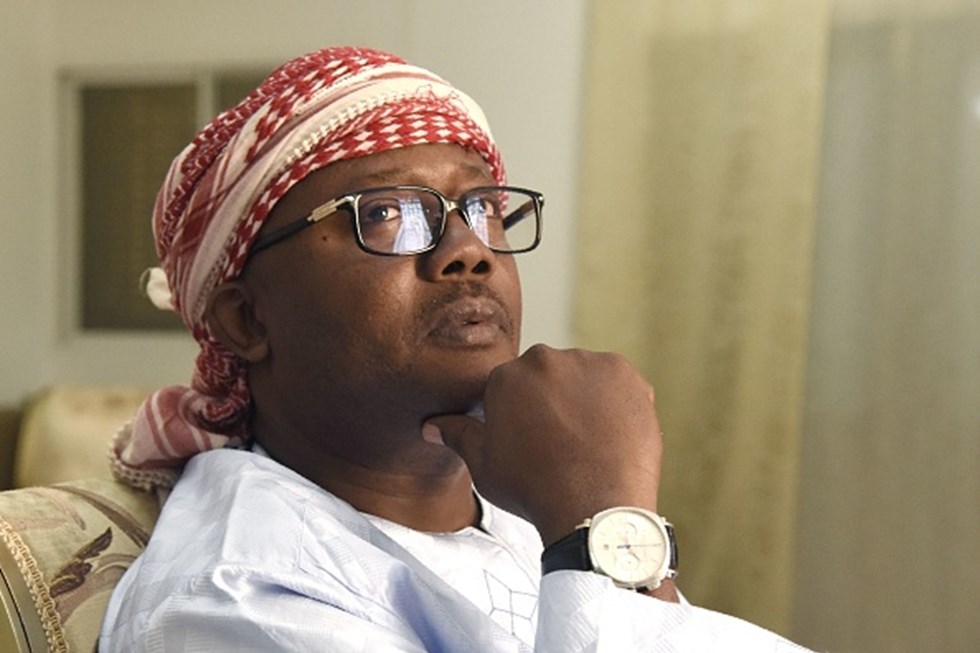Umaro Sissoco Embaló
Early Life, Education, and Military Foundations
Umaro Sissoco Embaló, the current President of Guinea-Bissau, was born on September 23, 1972, in Bissau, then a territory under Portuguese rule. His formative years were shaped by a period of significant political and social upheaval in his country. Embaló pursued a rigorous academic and military education, laying the groundwork for his future political and leadership roles. He earned a degree in International Relations from the Higher Institute of Social and Political Sciences at the Technical University of Lisbon. His academic pursuits were complemented by specialized military training. He completed a national defense course at the National Defense Centre of Spain and held the rank of brigadier-general in the Bissau-Guinean armed forces. This blend of international relations expertise and military discipline would prove crucial in his subsequent career, particularly in navigating the complex political landscape of Guinea-Bissau.
Ascension Through the Political Ranks
Embaló's political career began to gain significant momentum in the 2000s. His early political experience included serving as an advisor to the President of Guinea-Bissau. This role provided him with invaluable insights into the inner workings of the state and exposed him to high-level decision-making processes. His expertise in international relations was particularly relevant, as Guinea-Bissau often grappled with complex foreign policy challenges and sought to strengthen its diplomatic ties.
Ministerial Appointments and Prime Ministership
His capabilities were recognized, leading to his appointment as Minister of African Affairs and later as Minister of Defense. These ministerial portfolios positioned him at the nexus of domestic security and regional diplomacy, areas critical for Guinea-Bissau's stability and development. His tenure in these roles was marked by efforts to professionalize the armed forces and enhance the country's security architecture.
The pinnacle of his pre-presidential career came on November 18, 2016, when he was appointed Prime Minister by President José Mário Vaz. His premiership, however, was characterized by significant political instability and a protracted institutional crisis. During his time as prime minister, Embaló faced numerous challenges, including strained relations with his own party, the African Party for the Independence of Guinea and Cape Verde (PAIGC), and opposition from various political factions. This period was marked by frequent cabinet reshuffles and a struggle for political consensus. Embaló ultimately resigned from his position as Prime Minister on January 16, 2018, citing a lack of support for his government's policies.
The Path to the Presidency
Following his resignation as Prime Minister, Umaro Sissoco Embaló set his sights on the highest office in the land. He announced his candidacy for the 2019 presidential election, running under the banner of Madem G15, a party formed by dissidents from the PAIGC. His campaign focused on themes of economic development, national reconciliation, and institutional reform, appealing to a populace weary of political gridlock and instability.
The presidential election was highly contested and fraught with controversy. Embaló advanced to the second round, where he faced Domingos Simões Pereira, the candidate from his former party, PAIGC. On December 29, 2019, the National Election Commission (CNE) declared Embaló the winner of the run-off election, securing 53.55% of the votes.
Disputed Victory and Inauguration
However, his victory was immediately challenged by Domingos Simões Pereira and the PAIGC, who alleged widespread irregularities and electoral fraud. The ensuing political deadlock plunged Guinea-Bissau into further uncertainty. Despite the challenges to the results, and before the Supreme Court could rule on the electoral dispute, Embaló proceeded with an unofficial inauguration ceremony on February 27, 2020. This move was controversial and condemned by many international observers and domestic political actors as an unconstitutional act.
Nevertheless, Embaló solidified his position as president. His presidency has been characterized by efforts to assert presidential authority, stabilize the country's finances, and tackle corruption. He has also navigated several political crises, including an alleged coup attempt in February 2022, which he successfully thwarted.
Personal Life and Public Image
Beyond his political career, Umaro Sissoco Embaló is known for his fluency in several languages, including Portuguese, Spanish, English, French, Arabic, and Swahili, a testament to his international exposure and a significant asset in diplomatic engagements. This linguistic versatility has often been highlighted as an advantage in fostering international relations for Guinea-Bissau. His public image is often described as that of a decisive leader, though his actions have at times been viewed as confrontational by his political opponents. He is married and has children. While details of his personal life are generally kept private, his public persona emphasizes his military background and his commitment to national stability.
